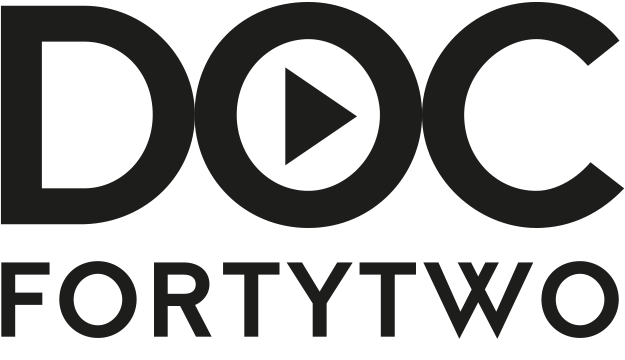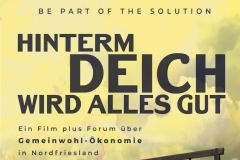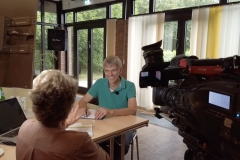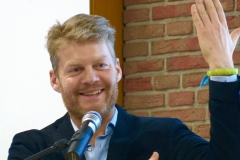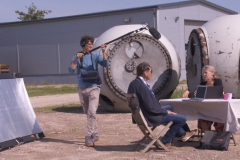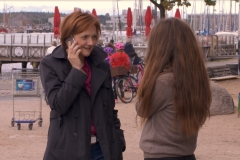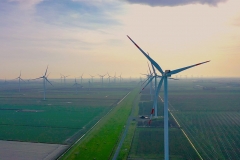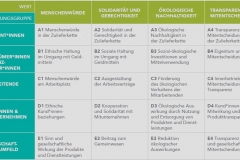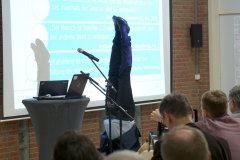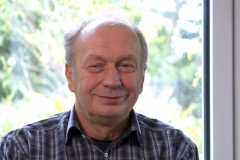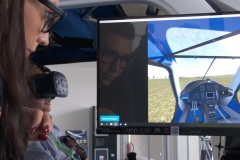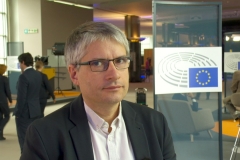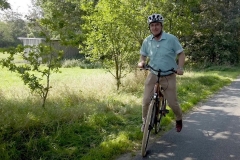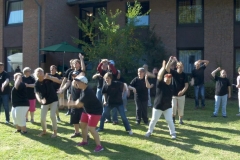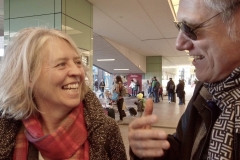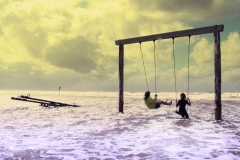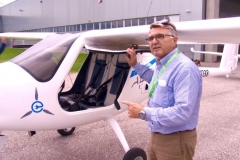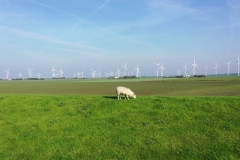89% of Germans want a different economic system! (Bertelsmann Foundation).
In North Frisia you are not satisfied with the wish, here things are done.
Three villages on the west coast and a Husum social facility are facing one alternative economic model: the common good economy. “Here we like to act.” says Hans Pahl-Christiansen head of Husumer Horizonte. This is about social values instead of profit, about cooperation instead of Competition for product sustainability instead of the cheapest offer. The management consultants and common good economists Anke Butscher and Gerd Lauermann get to the point: “What are the communities doing to save this planet? We’ll ask about that.” Sven Giegold, MEP of the Greens in Brussels and Ambassador of the Economy for the common good, thinks: “Of course it is symbolic if three villages in the North – who have to think for themselves what future they have, if the Climate change is progressing – that they say we start and don’t wait that others do it. Simone Lange, Lord Mayor of Flensburg, imagines a common good economy specifically also for your city: “That would be great growth, where we can also completely redefine growth!”
Is economy for the common good the solution to the growing Division of our society and climate change? The documentary seeks answers to these questions by portraying the Mayor of the three municipalities with their future-oriented plans entirely personally.
Gabriele Kob and Hanno Hart have been living and working in Stapel, for ten years near a village, Friedrichstadt, and bring a lot of experience from the film and television business. Since living in the country, they tackle the issues that burn here under the nails in a solution-oriented and entertaining way.
CAST
Anke Butscher, Christian Felber, Sven Giegold, Simone Lange, Claus + Gönke Lass, Gerd Lauermann, Hans Pahl Christiansen, Peter Reinhold Petersen & Sons, Werner + Renate Schweizer
CREW
Directed by Gabriele Kob
Screenplay: Gabriele Kob, Hanno Hart
DOP: Hanno Hart
Editing: Hanno Hart
Sound: Frank Gautier
Music: Momme Boe, Helene Hart
Production: hartfilm
Funded by: FFHSH Filmwerkstatt, Bingo! Foundation, GTS Hamburg
GABRIELE KOB
Studied acting at the Hamburger Schauspielstudio H.Frese. She then trained as a gestalt therapist with Gestalt Training Services, Ischa Bloomberg, New York and Vignalino, Italy. Further training: Schlesin-ger/Cunningham (The Heroes Journey), John Vorhaus (Comedy) and with Al Baumann/Emily Derr (Streaming Theatre, NeoReichian Theatre Work). She worked on a total of 50 scripts and two directing projects for herself, 13 scripts for existing TV formats, and 5 realised series concepts.
SELECTION OF PRODUCTIONS
Hinterm Deich wird alles gut – documentary 52 min, script and direction, Hartfilm; Geschichten für den Ohrenbär, radio rbb, NDR, WDR; Das verdrehte Leben der Amélie, 12 episodes radio play series, sony music; Unsere Dorfschule – documentary 70min, script and direction, Hartfilm; Rennschwein Rudi Rüssel – Die Serie, series concept, 14 scripts, Relevant Film ARD; Liebling, Wir Haben Geerbt! TV episode, Bremedia Prod. ARD Hauptabend; Drei mit Herz, idea, series concept and 21 scripts, StudioHamburg ARD Hauptabend; Aus Gutem Haus, idea and series concept (with Peter Bauhaus), 8 scripts, TV60 ARD Vor-abend; www.gabrielekob.de
We have been living behind the dike for twelve years now. Three villages near us are jointly embracing GWÖ: a value-based economic model? The common good instead of profit? We were inspired by the initiative of the communities, the people there, and the philosophy behind the model. They are committed to creative solutions to the man-made crisis and proactive people are the focus of this film. The news of three villages in North Friesland joining an alternative economic model did not take long to reach us. It’s a portrait of three mayors and what motivates them.
PRESS
Charitable Trust Agency Hamburg e. V. GTS_Annual Report_2019
Sustainable commitment to the common good in Breklum, Bordelum and Klixbüll
In the villages of North Frisia there is a very special tradition of cooperation and shaping the future. “Husumer Horizonte”, an institution for people with disabilities, and three villages on the coast of North Frisia – Breklum, Bordelum and Klixbüll – have jointly turned to an alternative economic model: the common good economy. This is an ethical economic model in which the well-being of people and the environment is the primary goal of economic activity. Money becomes only a means to an end – and that end is the common good: human dignity, equality and sustainability. It is about social values over profit, cooperation over competition, and sustainability of products over the cheapest offer. The need for a shift towards a sustainable economy is undisputed. Communities can play an important role in the struggle for justice and participation. If people become participants in the shaping process, their acceptance of sustainable development will increase. Is the common good economy a solution to climate change and the increasing division of our society? The documentary film “Hinterm Deich Wird Alles Gut” (Everything Will Be Fine Behind the Dike) by screenwriter Gabriele Kob and cinematographer Hanno Hart seeks to answer this question. In doing so the mayors of the three communities and their plans are portrayed in a very personal way. The film gets close to the initiators in the three villages, the various aspects, especially social and ecological sustainability, accompanying them in their everyday lives. We want to know what has prompted them, what their goals are and the obstacles on their way. The film is meant to inspire imitation and promote regional development with its thoroughly entertaining narration of good examples. It shows the possibility of becoming socially proactive. It is intended to create an awareness of how people can live together in a more sustainable, community-oriented way that improves the sustainability of rural communities.
The association “Landschaft Stapelholm”, sponsor of the film project, promotes social, cultural, economic and ecological projects both conceptually and materially. It supports efforts in the fields of history, village and regional development, art, culture, monument protection, as well as nature and environmental protection.
FESTIVALS
Husumer Filmtage 2020
